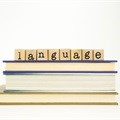
Subscribe & Follow
#AfricaMonth
Jobs
- Lecturer and Module Coordinator (Apparel Production) Pretoria
- Lecturer: Logistics Management Bellville
- Lecturer: Visual Effects (VFX) Cape Town
- Programme Coordinator: Post Graduate Department Cape Town
- Interior Design Lecturer Potchefstroom
- Lecturer: School of Humanities and Social Sciences Durban
- Buildings and Maintenance Officer Durban
- PE Campus Dean Port Elizabeth
- IT Assistant Cape Town
- x2 Lecturer / Senior Lecturer - School of Information Technology Pretoria
In the news
UCT digital archive breaks barriers for isiXhosa research

De Wet has begun to introduce these African thinkers into contemporary sociology through his own teaching and research.
Most sociology students will be familiar with the names Max Weber and Émile Durkheim, influential European sociologists who lived and wrote in the late 1800s and early 1900s. But far fewer, even in South Africa, would have heard the names Mpilo Walter Benson Rubusana and Samuel Edward Krune Mqhayi, African intellectuals and social commentators from the same period who published their work in isiXhosa.
Their writings significantly influenced African ideological and intellectual projects of the period, which culminated in 1912 with the launching of the South African Native National Congress, later known as the Africa National Congress (ANC).
Fortunately, work is underway to bring their writings to light.
De Wet, head of the isiXhosa Sociological Concepts and Intellectual Traditions Research Group, and Amandla Ngwendu, from African Languages at UCT, working with a team of isiXhosa-speaking students are digitising isiXhosa newspapers and books from the late 1800s and early 1900s.
The goal of the archive is to make the writings of these African intellectuals available and “research-ready” for contemporary study.
The IsiXhosa Intellectual Traditions (IsiXIT) Digital Archive, already available on the iBali platform hosted by UCT Libraries’ Digital Library Service, was born out of a conversation between De Wet and a colleague who was researching the writings of Mqhayi.
De Wet elaborates: “Guided by the work of Neville Alexander on multilingualism and decolonising academia, I began to read Mqhayi’s work in isiXhosa and soon realised that if we were going to decolonise sociology and contribute meaningfully to the making of an African sociology, it was critical that we engaged with these and other texts written in the vernacular and grapple with the socially constructed meanings of African sociological concepts as they are conveyed through these texts.”
Accessing the isiXhosa writings
Part of the challenge of researching the writings of African intellectuals, published at the turn of the 20th century, was accessing their work.
“These texts are scattered across numerous libraries in South Africa, and they are in varying conditions,” De Wet explains.
The books are easier to access, but isiXhosa newspapers from the 1800s are very fragile and, for that reason, many are not available to the public. They can be viewed only as static digital images.
The challenge of trying to access and convert these writings for his own research got De Wet thinking about the value of a digital archive. This plan gained considerable urgency after the devastating fires at UCT in 2021, which destroyed so many primary collections.
Working with Ngwendu and his former student Dr Jonathan Schoots (at Stellenbosch University), De Wet managed to secure funding and recruited a team of isiXhosa-speaking students to build the IsiXIT Digital Archive. It includes PDFs and text files of early isiXhosa newspapers and books as well as additional information (metadata) about each publication and its contents.
“It is an expensive and time-consuming endeavour,” De Wet says. “We had to purchase digital copies of the newspapers. Then we converted them into text documents using optical character recognition software. Thereafter, the converted text needed to be corrected for formatting, spelling and other errors.”
Here is where the work of the isiXhosa-speaking students was invaluable.
Working under the guidance of Ngwendu, the students worked systematically to correct errors before the texts were uploaded to the collection.
“The newspapers are often damaged,” says Ngwendu. “It is therefore incredibly important that the students are very fluent in isiXhosa and engage carefully with the content because sometimes words are illegible, and they would have to read in context to figure out what the word is supposed to be.”
Research and the collection
The collection is gradually expanding. But the team receives emails requesting even more material.
Ngwendu, while sceptical at first about the idea, soon changed her mind when she began engaging with the texts. And now that emails are coming in asking for more content, the value of the work is clear.
Zimingonaphakade Sigenu is just one of students using the collection for research. De Wet supervised Sigenu’s master’s thesis that drew on the archive and other sources to investigate the socially constructed meanings of the isiXhosa concept of impucuko and how it has evolved over the past 150 years.
Making a discipline our own
De Wet is also introducing this work into his teaching.
“We now have bilingual publications that allow students to learn about isiXhosa sociological concepts,” he says. “Once we have sufficient sociological concepts in isiXhosa, we can progress to indigenous theories.”
He was heartened by the comments from one isiXhosa-speaking student who told De Wet that when she first started studying sociology, she could not find herself in the discipline; she saw it as something foreign. After working on the archive and reading the research outputs, her view shifted. She told De Wet that she was now able to locate herself in the discipline and saw sociology as “something that is ours”.
“This begins to show the importance of the IsiXIT Digital Archive as a source for decolonising our curricula,” says De Wet.
“When sociology is no longer foreign and students can identify with it – and academia more generally – then we are likely to see new contextually relevant, innovative research that pushes the frontiers of knowledge both locally and globally.”
Related
From ruins to resilience: Gazan medical students triumph against adversity in SA 16 May 2025 Distinguished UCT professor joins elite group at US science academy 8 May 2025 UCT prioritises end-of-life care with novel project 2 May 2025 Meet the neuroscience star who’s using tech to decode the brain 21 Apr 2025 Home dialysis: The affordable solution for kidney patients in remote areas 10 Apr 2025 UCT launches new language policy to boost multilingualism 13 Mar 2025















